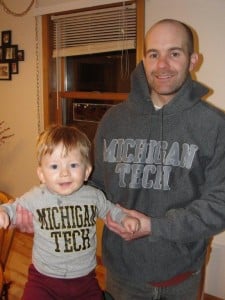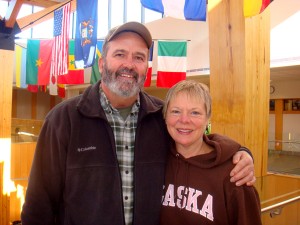
Jason Caron sent in this cute picture of his son Elijah sporting his Michigan Tech gear. Jason says that Eli is growing like a weed ( he is 16 months old here) and he had to get one more picture before Eli out grew the shirt! Jason reports that all is going well in Sault Ste. Marie where he is a forester with the Michigan DNR in their Soo field office.

